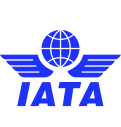The UK’s Modern Slavery Act came into force in 2015. On this page, we explain how we applies policies and procedures under the provisions of this Act.
The International Air Transport Association (IATA) is committed to leading the airline industry in playing its part to help combat slavery and human trafficking. We are also committed to improving our internal processes to ensure that both our organization and our supply chain includes no trace of slavery or human trafficking.
Our business
IATA is the trade association for the world’s airlines, representing some 300 airlines that comprise 82% of total air traffic. We support many areas of aviation activity and help formulate industry policy on critical aviation issues. Our mission is to represent, lead and serve the airline industry.
IATA was established in 1945, by a special Act of the Canadian Parliament. The Association is headquartered in Montreal, Canada, with branch and representative offices disbursed throughout the world.
In 2016, IATA established a Joint Corporate Social Responsibility Task Force (CSRTF) that acts as an advisor to relevant IATA bodies and IATA management on matters related to specific areas of corporate responsibility including reporting, human rights, promoting social responsibility in the value chain and social investment. IATA has raised awareness of the UK Modern Slavery Act (UK MSA) and other similar emerging global legislation through the CSRTF in which compliance obligations and best practice have been shared amongst members.
IATA’s People, Performance and Development “PPD” department has undertaken a review of its human resource policies and determined that additional anti-modern slavery provisions are not currently required. PPD will conduct periodic reviews to determine if there is a need in the future to strengthen human rights policies and procedures.
Our supply chains
As a trade association with offices and operations spanning the globe, the majority of our supply chain comprises the following services: office facilities management; consulting; IT; and data processing. Although we have no reason to believe that there is a high risk of modern slavery and human trafficking within our supply chain, we have incorporated anti-slavery clauses into our supplier contracts that will be used going forward to minimize the risk of slavery and human trafficking in our supply chain. We will continue to monitor the risk of being exposed to slavery and human trafficking and adapt and strengthen our policies accordingly.
Our work to combat human trafficking in the air transport sector
An IATA Resolution denouncing human trafficking was passed at our 74th Annual General Meeting in Sydney in June 2018. The Resolution reaffirms airlines' commitment to support governments and law enforcement to prevent human trafficking through awareness raising, staff training and reporting suspicious behavior.
We have also started a campaign titled #Eyesopen, which is designed to raise awareness among passengers, airlines and governments, of the crime of human trafficking. Through a variety of materials, including an animated film that demonstrates how traffickers misuse aviation (available here), the campaign is designed to show how aviation staff on the front-line can play their part in helping to combat human trafficking.
In addition to working with our member airlines to increase staff and passenger awareness, IATA has called on governments and their enforcement agencies to provide clear, practical and discrete mechanisms for airline staff so they can report potential trafficking situations.
We are also working with airports and other stakeholders within the air transport sector to raise awareness on human trafficking and share our guidance material, including our ‘recognize and report' practice.
Find out more about IATA's activities against Human Trafficking
Approval
This initial statement is made pursuant to section 54 of the UK’s Modern Slavery Act 2015 and has been endorsed by Willie Walsh, IATA's Director General. This statement constitutes IATA’s slavery and human trafficking statement for the financial year ending December 2020.
